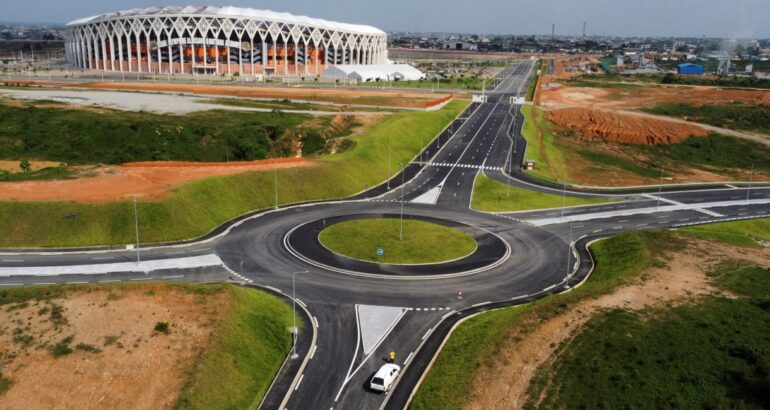The Confederation of African Football’s (CAF’s) highly anticipated African Cup of Nations (AFCON) 2023 is set to kick off on January 13 in the Ivory Coast, where the continent’s biggest stars are expected to shine after an impressive showing for their respective clubs and the Qatar World Cup 2022.
The tournament boasts five teams from the tournament in Qatar, with semifinalists at the global showpiece – Morocco – the red-hot favourites to become the champions of Africa.
Who are the hosts?
The African Cup of Nations takes place in Ivory Coast for a second time.
Matches will be held at six stadiums across five cities.
The capital, Abidjan, offers two venues – the Felix Houphouet-Boigny Stadium and the Alassane Ouattara Stadium, which will also host the final.
Yamoussoukro, Bouake, Korhogo and San Pedro will host the remaining fixtures.
Which teams have qualified?
Group A – Ivory Coast, Nigeria, Equatorial Guinea, and Guinea-Bissau
Group B – Egypt, Ghana, Cape Verde, and Mozambique
Group C – Senegal, Cameroon, Guinea, and The Gambia
Group D – Algeria, Burkina Faso, Mauritania, and Angola
Group E – Tunisia, Mali, South Africa, and Namibia
Group F – Morocco, DR Congo, Zambia, and Tanzania
When are the opening fixtures?
Ivory Coast face Guinea-Bissau in the opening match at the Alassane Ouattara Stadium, Abidjan, on January 13 in Group A. The kickoff is at 20:00 GMT.
The host nation will have the focus on the first day, but after that, there will be a minimum of two games per day through the group stage.
On match-day two, Nigeria take on Equatorial Guinea at 14:00 GMT to complete the first round of fixtures in Group A, with the game again being played at the Alassane Ouattara Stadium.
Abidjan remains the focus for the next two games of the day as Egypt meet Mozambique before Ghana open against Cape Verde. Both Group B games will be played at the Felix Houphouet-Boigny Stadium that day, with kickoff times of 15:00 GMT and 20:00 GMT, respectively.
How does the group stage work?
The top two teams in each group and the four best-ranked third-placed teams will advance to the last 16.
The bottom teams and the two worst-ranked third-placed teams in each group will be eliminated from the tournament.
How does the knockout stage work?
There will be three rest days from January 24 before the last-16 fixtures commence.
This is how the last 16 stage looks:
Group D winners vs third place Group B/E/F
Group A runners-up vs Group C runners-up
Group A winners vs third place Group C/D/E
Group B second place vs Group F runners-up
Group B winners vs third place Group A/C/D
Group C winners vs third Place Group A/B/F
Group E winners vs Group D runners-up
Group F winners vs Group E runners-up.
Who are the past winners?
Egypt are the record winners in AFCON’s history with seven titles. They were also runners-up most recently, in 2017 and 2021.
Cameroon are the second most successful team with five wins.
Ghana have lifted the trophy on four occasions but not since 1982. That still, however, will irk their West African rivals, Nigeria, who have claimed the title three times.
Hosts Ivory Coast, Algeria (winners in 2019) and DR Congo have two wins each.
Senegal are defending their only Africa Cup of Nations crown, while Morocco, the highest-ranked nation, have also only been crowned winners once, and that was in 1976. Tunisia, Zambia, Sudan, Ethiopia, South Africa and the Republic of the Congo have also lifted the title on one occasion.
Who are the favourites?
World Cup semifinalists Morocco are the clear favourites as they look to end a nearly 40-year wait for their second AFCON crown.
The 1976 winners are the highest-ranked team at the tournament.
Reigning champions Senegal and the team they defeated in the last edition, Egypt, are expected to be the teams to push them closest.
Nigeria boast the squad with the most depth.
How much is the prize money?
There will be a 40 percent increase in the prize money for the winners of the 2023 Africa Cup of Nations.
The winners of the latest edition in Ivory Coast will receive 5.5 million pounds ($7m).
The runners-up will get 3.165 million pounds ($4m), with each of the two semifinalists receiving 1.979 million pounds ($2.5m) and the four quarterfinalists taking 1.029 million pounds ($1.3m) each.



